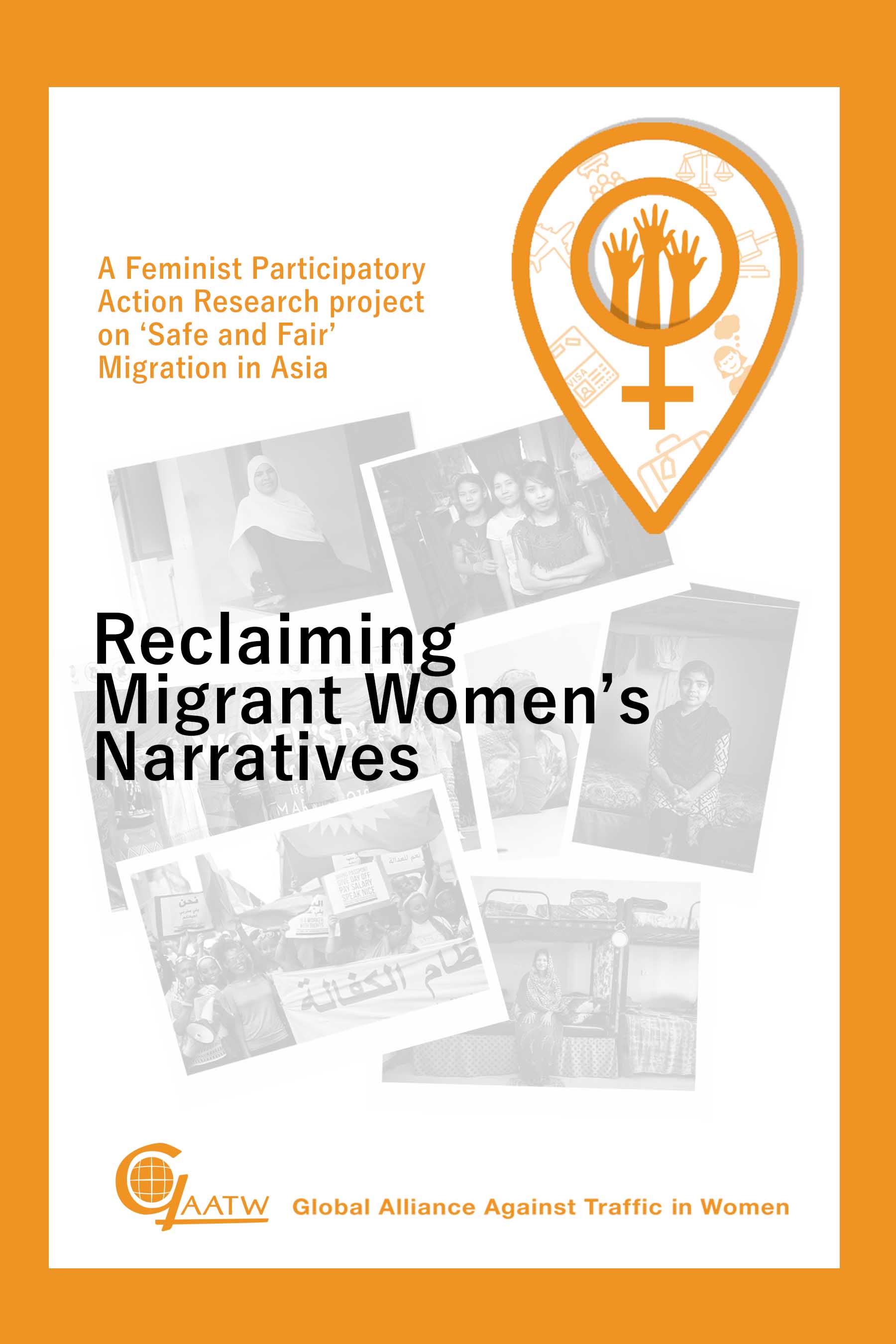In 2018-2019, the International Secretariat of the Global Alliance Against Traffic in Women (GAATW-IS), in collaboration with eleven organisations across nine countries in Asia, carried out a Feminist Participatory Action Research (FPAR) on “Safe and Fair Migration: A feminist perspective on women’s rights to mobility and work”.
The research aimed to deconstruct dominant understandings of safe and fair migration and reshape these concepts from a feminist perspective. It was our collective effort to deconstruct and reshape a narrative of labour migration that is safe and fair for women workers, especially those in the most marginalised segments of society. This study serves as evidence to fight for the rights of migrant workers and amplify women’s voices in the local, regional, and international migration agenda.
The reports show that Safe and Fair migration cannot happen in a silo – the factors that produce gender segregated labour markets, industries dependent on flexible, underpaid and overworked migrant labour require a systemic change. This change can happen at the grassroots level, through self-organised groups of women (migrant) workers. Overall there is a need for critical conversations about serious limitations of safe migration policies and governance mechanisms in the context of a labour market scenario is which capital and power are increasingly being taken away from workers and placed into the hands of a few, under the thumb of repressive regimes.
The increasing reliance on migrants in certain labour sectors risks further dividing societies and fostering xenophobia, racism and anti-migrant sentiments and causing Western governments to place more restrictions on migration. The safety and fairness of migration risk being even more constrained under such pressures. It is necessary not only to highlight the positive impact of migrants on the economies of destination countries, and to counter false claims about migrants as perpetrating crime and draining the social system, but also more generally, to promote the human rights framework and the fact that all human beings are equal and deserve to be treated fairly.
Downloads:
Regional Report
Country Reports
Feminised Migration and Deteriorating Conditions of Employment in the Garment Industry in Cambodia: Perspectives of workers organised by CATU, Cambodian Alliance of Trade Unions (CATU), Cambodia
“I wish I would never have to wake up again”: Material conditions and psychological well-being of Bangladeshi women garment workers in Jordan, Nadia Afrin, Jordan
Migrant Domestic Workers’ Community Organizing within the Lebanese Socio-Legal Context, Anti-Racism Movement (ARM), Lebanon
Permanently Temporary: Ageing Sri Lankan Migrant Domestic Workers (SDMWs) and Exclusionary Social Policies in Lebanon, International Domestic Workers Federation, Lebanon
Perspective: Journey of Women Workers and Search for Change, Women Forum for Women (WOFOWON), Nepal
Safe and Fair Migration: A Feminist Perspective of Myanmar Women Migrant Workers in Mae Sot Garment Factories on Women’s Rights to Mobility and Decent Work, MAP Foundation, Thailand
Safe and Fair Migration from the Perspective of Women Migrant Garments Workers (WMGW) in Bangladesh, Karmojibi Nari, Bangladesh
Strengthening Sisterhood in Fighting for Women Migrant Workers’ Safe and Fair Migration in Curut village of Central Java, Indonesia, Legal Resources Center- Untuk Keadilan Jender Dan Hak Asasi Manusia (LRCKJHAM), Indonesia
Towards building safe and fair migration practices within the domestic workers’ communities in Kerala - Both cross border and interstate migrants, Self-Employed Women’s Association (SEWA-Kerala), India
Women’s Right to Mobility and Right to Work: Perspectives from Migrant Women in India’s National Capital Region, Society for Labour and Development, India

